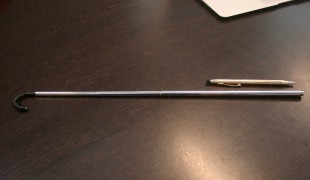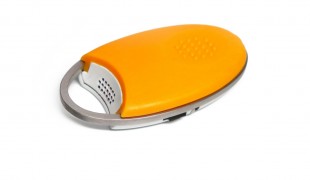- 7463
- 489
- 9
- 9
- 0
- Help Ukraine
About the solution
The prostheses that some breast cancer survivors wear are detected by airport Transportation Security Administration body scanners when previously-used metal detectors did not.
The cards are similar to those ID cards used for pacemakers and other prosthesis, but are meant specifically for breast cancer prosthesis and to provide a discreet explanation to the security officials.
Electra Paskett, associate director for population sciences at OSU Comprehensive Cancer Center Arthur G. James Cancer Hospital, and a breast cancer survivor, said her experiences with the TSA body scanners left her outraged.
“When going through airport security I was pulled aside and asked if security could pat my chest down. I explained to them that I was wearing prosthesis. They told me they would still have to pat me down. I asked that they do it in private. They did, and then completed their check for explosives. The procedure was very uncomfortable. I thought that they should be able to tell the difference between what is dangerous and what is not,” Paskett said.
Paskett was also concerned for others who go through the same situation.
“I thought that the whole process was very rude. People around you know what’s going on,” Paskett said. “It can be hard for women who are sensitive about explaining their situation in a public place and to strangers.
Now, she has found a solution that restores some of her dignity. She carries a special card to inform TSA guards of the location of her prosthesis. “I don’t have to say it out loud anymore in front of other people,” she says. “I’m more at ease.”
The TSA developed a card last year that can be downloaded, but Paskett found it to be “cold and kind of ugly,” she stated. She teamed up on a design with Vera Garofalo, manager of Hope’s Boutique, a shop at Ohio State ‘s James Cancer Hospital that sells clothing for people with cancer. “This card is not intended to excuse anyone from those security screenings. It simply allows women and agents to communicate more discretely,” says Paskett.
For more information about obtaining a breast prosthesis identification card, contact Hope’s Boutique, 614-293-9393
Adapted from: http://www.oandp.com/articles/NEWS_2011-10-25_01.asp
What about you, do you have any solutions? Please share them with the Patient Innovation community!
https://www.youtube.com/watch?v=WS4XMwPoCFk
This solution shall not include mention to the use of drugs, chemicals or biologicals (including food); invasive devices; offensive, commercial or inherently dangerous content. This solution was not medically validated. Proceed with caution! If you have any doubts, please consult with a health professional.
DISCLAIMER: This story was written by someone who is not the author of the solution, therefore please be advised that, although it was written with the utmost respect for the innovation and the innovator, there can be some incorrect statements. If you find any errors please contact the patient Innovation team via info@patient-innovation.com
-
-
334
-
0
-
3795

Teacher Alex Truesdell is Transforming Lives: Adaptive Design Association Revolutionizes Disability Solutions
CAREGIVING
Drawing
Painting
Playing
BODY BALANCE: Maintaining body balance
(SELF)-CARE: DRINKING: Drinking independently.
(SELF)-CARE: EATING: Eating independently.
MOVING IN A WHEELCHAIR: Moving using a wheelchair.
Playing an instrument
Studying
Blindness
Hand Deformity
Neuromuscular Disorders
Assistive Daily Life Device (to help ADL)
Walking Aid (wheelchair/walker/crutches)
Restoring mobility
Replacing lost limbs
Enhancing health literacy
Promoting self-management
Promoting inclusivity and social integration
To improve Treatment/Therapy
Preventing (Vaccination, Protection, Falls, Research/Mapping)
Raise awareness
Caregiving Support
General and Family Medicine
Internal Medicine
Orthopedics
Pediatrics
Physical Medicine and Rehabilitation
United States
-
-
-
487
-
0
-
7190

Pointer that opens doors
CAREGIVING
Grip
Dwarfism
Assistive Daily Life Device (to help ADL)
Strategy/Tip
Restoring mobility
Promoting self-management
Building Supportive Community Relationships
Promoting inclusivity and social integration
Raise awareness
General and Family Medicine
Medical Genetics
Physical Medicine and Rehabilitation
Portugal
-
-
-
340
-
0
-
4925

Nurse creates device to help patients with memory loss.
CAREGIVING
WALKING: Walking
Alzheimer's Disease
Assistive Daily Life Device (to help ADL)
Assistive Technology access
Difficulty coordinating movements
Difficulty speaking or understanding speech
Memory loss
Mood swings
Restoring mobility
Promoting inclusivity and social integration
Raise awareness
Caregiving Support
General and Family Medicine
Internal Medicine
Neurology
United States
-
 en
en